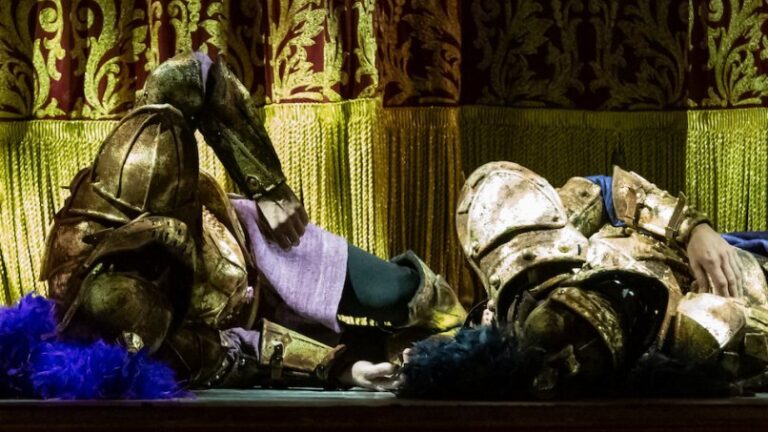In her new staging of the opera for Palermo, Emma Dante, who is herself a native of that city, links the historical uprising of 1282 to the anti-mafia protests that erupted all over Sicily thirty years ago. It was that popular revolt, sparked by the murder of judge Giovanni Falcone, that ultimately led to the reopening of the Teatro Massimo, which owing to mafia machinations had previously been closed for more than twenty years.
Les vêpres siciliennes was the first French-style opera that Verdi wrote from scratch, his only previous attempt at grand opera having been his highly acclaimed reworking of I Lombardi. What makes Les vêpres so remarkable, therefore, is not just its rousing arias and choruses – standard Verdi fare, in other words – but its inclusion of ballet, then still a non-negotiable component of all French opera that scarcely any composer dared ignore.
Les vêpres siciliennes premiered at the Paris Opéra during the Exposition universelle of 1855. The plot rests on a historical event from the year 1282, when the Sicilians rose up against the Norman occupation of their country.
That this tale of righteous rebellion might also be understood as a parable of the Italian Risorgimento did not go unnoticed by the Italian censors, who felt bound to cut innumerable passages. The original, full-length version was not, therefore, performed on Italian soil until after the founding of Italy in 1861. These days the opera is staged as much in the original French version (as here in Palermo) as in its Italian variant, Il vespri siciliani.
In her new staging of the opera for Palermo, Emma Dante, who is herself a native of that city, links the historical uprising of 1282 to the anti-mafia protests that erupted all over Sicily thirty years ago. It was that popular revolt, sparked by the murder of judge Giovanni Falcone, that ultimately led to the reopening of the Teatro Massimo, which owing to mafia machinations had previously been closed for more than twenty years.
- Recorded January 20, 2022 at Teatro Massimo, Palermo.
- Director: Tiziano Mancini
- With: Teatro Massimo Orchestra, Coro and Ballet
- With: Cristian Zucaro, Gabriele Sagona, Andrea Pellegrini, Alessio Verna, Pietro Luppina, Francesco Pittari, Matteo Mazzaro, Luca Tittoto, Mattia Olivieri, Leonardo Caimi, Carlotta Vichi, Selene Zanetti
- Music director: Omer Meir Wellber
- Choir director: Ciro Visco
- Choreography: Manuela Lo Sicco
- Costumes: Vanessa Sannino
- Artistic director: Emma Dante











